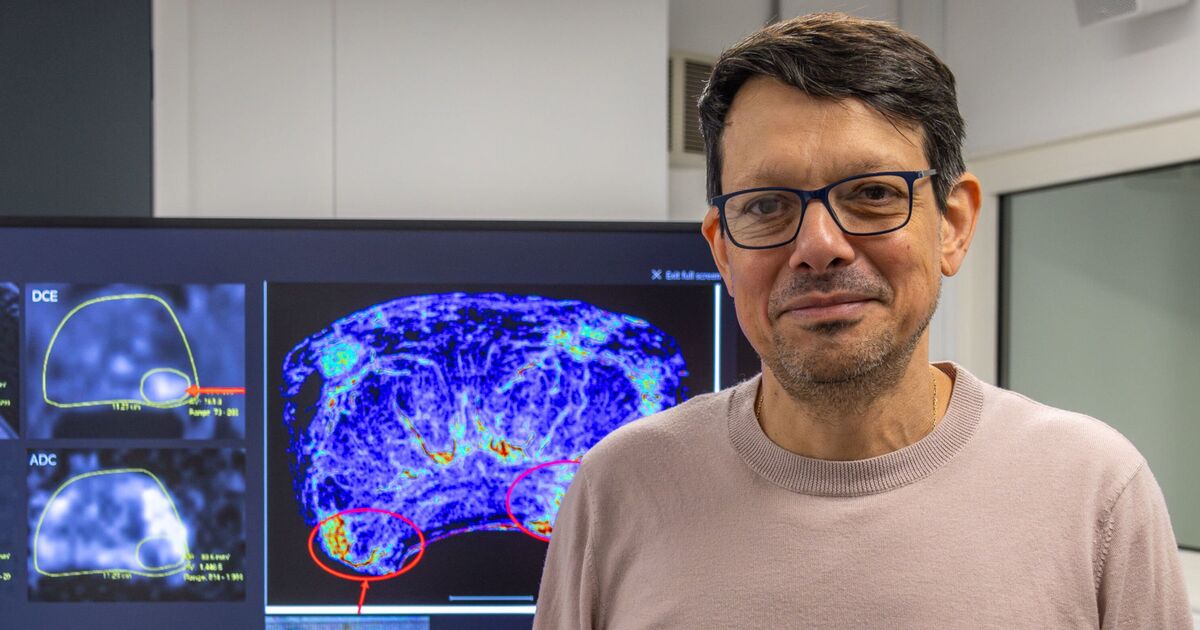An ultrasound test that takes less than 20 minutes could improve the accuracy of prostate cancer diagnosis, scientists say.
The technology was found to correctly identify tumours in 94% of cases and provide a 20-fold increase in resolution compared with MRI images.
The method involves injecting patients with a contrast agent containing millions of tiny, harmless microbubbles. A technique known as super resolution ultrasound imaging (SRUI) is then used to track the microbubbles as they travel through the bloodstream to the prostate.
Due to the altered blood flow in cancerous tissue, the image highlights previously unseen tumours, enabling earlier diagnosis.
Less Grey Imaging Ltd, a spin-out from Heriot-Watt University in Edinburgh, said tests at the Western General Hospital showed “extremely encouraging results”.
The company’s co-founder Professor Vassilis Sboros said: “This is exactly what the new Government needs to tackle the challenges facing the NHS.
“Back in 2019, we proved the concept worked in our lab but now we have shown it works during our initial patient trials.
“It’s just like looking inside the body with a microscope, allowing clinicians to see 20 times more detail than before. Even concealed tumours are possible to identify.
“With one man dying from prostate cancer every 45 minutes in the UK, we hope earlier detection will radically improve treatment outcomes, saving lives while reducing the number of people sent for unnecessary and often risky tests.”
Around 52,000 men receive a prostate cancer diagnosis every year in the UK.
Patients who are at high risk are eligible for the prostate specific antigen test, which searches for elevated levels of hormones linked to the disease. If flagged, they can be sent for MRI scans followed by biopsies.
However, up to 28% of clinically significant tumours are missed and around half of people who received positive MRI scans receive a native biopsy result, according to the researchers.
The ultrasound test uses existing equipment and could be rolled out on the NHS to improve image quality, they argued.
Dr George Papageorgiou, chief executive of Less Grey Imaging, added: “Currently, prostate cancer diagnosis varies widely across the country, with many patients being diagnosed too late for curative treatment.
“By integrating ultrasound more prominently into the diagnostic pathway, we can ensure equal opportunities for early diagnosis across all regions of the UK.”
Professor Alan McNeill, a consultant urological surgeon at the Western General Hospital in Edinburgh and founder trustee of charity Prostate Scotland, said: “The initial trial results are extremely encouraging, providing really useful information for the diagnosis and treatment of prostate cancer.
“This is the most common cancer in men but, if it is caught early while the cancer remains within the prostate, it can be cured in the majority of cases.
“Nearly every week, my colleagues and I meet men in their 50s or early 60s suffering from advanced prostate cancer that leaves them with fewer treatment options. We continue to raise awareness and encourage earlier diagnosis for all men.”









